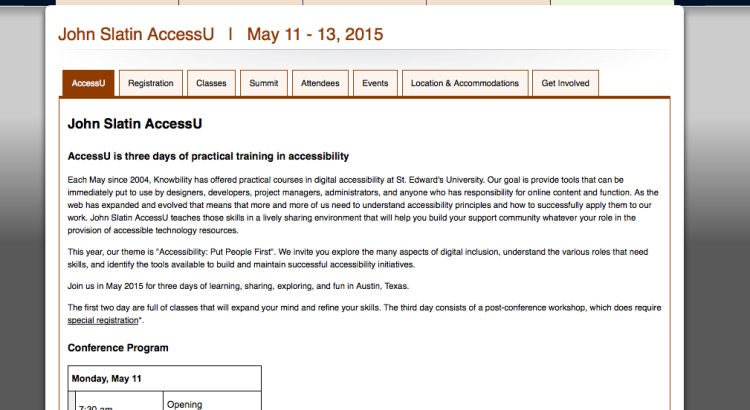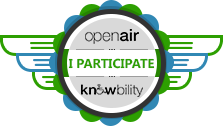Last month I wrote about learning to manage the ups and downs of life so that hopefully one moves in an upward fashion over time.
Everyone has ups and downs in life. That’s normal.
What I have found is that after brain injury, the ups and downs often get exaggerated. There are a lot more “downs” and its harder to get out of the downs because the cognitive and life skill tools that we have learned as adults are part of what got damaged.
What others have taught me in my recovery is that the quicker I can identify where I am in the ups and downs of life — in particular, whether things are getting worse of not , the better I can manage the ups and downs.
Managing ups and downs is a part of practicing medical resiliency.
I have been fortunate to have benefited from outpatient rehabilitation and visual training and some great doctors and therapists who have helped me recovery. I know how tough my life was like after my injury and before I learned these resiliency skills, so I am very grateful for them.
Even with a “mild” traumatic brain injury I had problems with awareness after my injury.
I was aware of some of my post-injury deficits, but needed help developing awareness of others.
As I developed more awareness of my deficits, I was able to learn strategies to do to improve my situation.
As I got better, I was able to improve my problem-solving and new learning skills, which meant I might be able to adjust a strategy to the situation and generalize more about when to use a strategy.
So how does that apply to my life this month?
Well, when I wrote last month, I thought that I was getting my energy back after resting after my long preparation for my speech at SXSW.
What I learned after I wrote the blog was that I wasn’t doing as well as I thought I was.
Long story short, I realized that I needed more rest.
As you may know from reading my blog, I am prone to err on the side of thinking that I am ready to increase my load too quickly.
And I erred that way again.
Good to know that I am pretty consistent in erring on the side of taking on too much before I am cognitively rested as much as I need to be.
So I made use of my updated awareness and I made plans to rest more, do yoga, slow down.
May is a busy month for a mom, with end of school programs and preparation for summer camps and traveling to the beach.
So slowing down further is going the opposite direction than those around me.
That makes it even harder to do. But necessary, nonetheless.
So I started to make a plan to take more time to do things I needed to do, get more downtime and more exercise and relax through doing yoga and stretching.
And then Sharron Rush, the Executive Director at Knowbility, a local nonprofit that does web accessibility emailed me.
She was putting together informal lunch time demonstrations so that conference goers could see how people with different disabilities used the computer at Knowbilitiy’s annual Accessibility U Conference.
She already had someone with blindness who uses screen-reader technology to read and tell her what was on her computer.
She wanted me to show and tell how I use the computer given my cognitive deficits.
This conference brings together experts from all over to teach different aspects of about how to make websites more accessible. Seminars run the gamut from the nitty-gritty how to write code point of view to the big picture how to get one’s organization on board to how to all kinds of new learning about how different kinds of people interface with the screen.
I jumped at the chance to present for two reasons:
1) For me, I know that doing things that inspire me, whether I am in a down turn or on the tough part of the upturn of the ups and downs of life (or not) will help me persist on my path when its especially tough. Its really hard to go through an extended downturn, and that is in fact when you need inspiration and support most of all, and that is often when its harder to get!
2) Secondly, Accessibility U has also been named John Slatin U, after my mentor John Slatin. John launched me public speaking career about brain injury when he was the head of the Center for Technology and Learning there. He encouraged me and spelled out the importance of it and healso through scheduling me to speak about cognitive disabilities to his class at UT in 2001.
So how did I honor my need to relax with the opportunity that I thought would help inspire me?
It required some thought and feeling my way into it and flexibility and problem solving with others.
But I did it!
I had to keep it in my mind that I was doing an informal lunch time demonstration. Underline informal.
My first thought was to get someone else, maybe Glenda Sims, to interview me.
Glenda worked in accessibility at UT at the time I spoke to John’s class.
Unbeknownst to me at the time, she saw my first speech.
Glenda remembers sitting in John’s class thinking that although I was reading my speech, that there was no way to know that I had cognitive issues.
For me, I had never read a speech since possibly speech class in 9th grade. Public speaking came easy to me before my injury!
And what was tough for me was that I didn’t actually know what I was saying in my speech, although I had written it with others and had practiced it at St Davids Rehab with a group of health professionals there organized by my speech therapist.
Glenda also remembers that when I finished my speech, I said I would take questions. I said I would get back to people if I couldn’t answer the questions.
She recalls that I could not answer simple questions about my computer use that 19 year olds asked. In other words I couldn’t apply knowledge at that point in my recovery.
Glenda said that the contrast between my speech and my question and answer was like night and day, and she could see my injury in the contrast.
I am pleased to say that my demo at John Slatin U went very well.
I shared Glenda’s story and what I learned with John then and what I know now.
I realized afterwards, that I also showed my recovery.
I was able to field questions from 20 to 25 professionals.
In contrast to 15 years ago, I could apply my knowledge and answer questions.
What a gift presenting was to me!
And I got lovely feedback from people who came.
And I got ideas for helping me with the computer.
It was very rewarding and informal and I was please to be able to share my knowledge to help others.
Public speaking gives me back as much as I give!
And because I could do a question and answer now, preparation took less out of me. A win-win for all.


